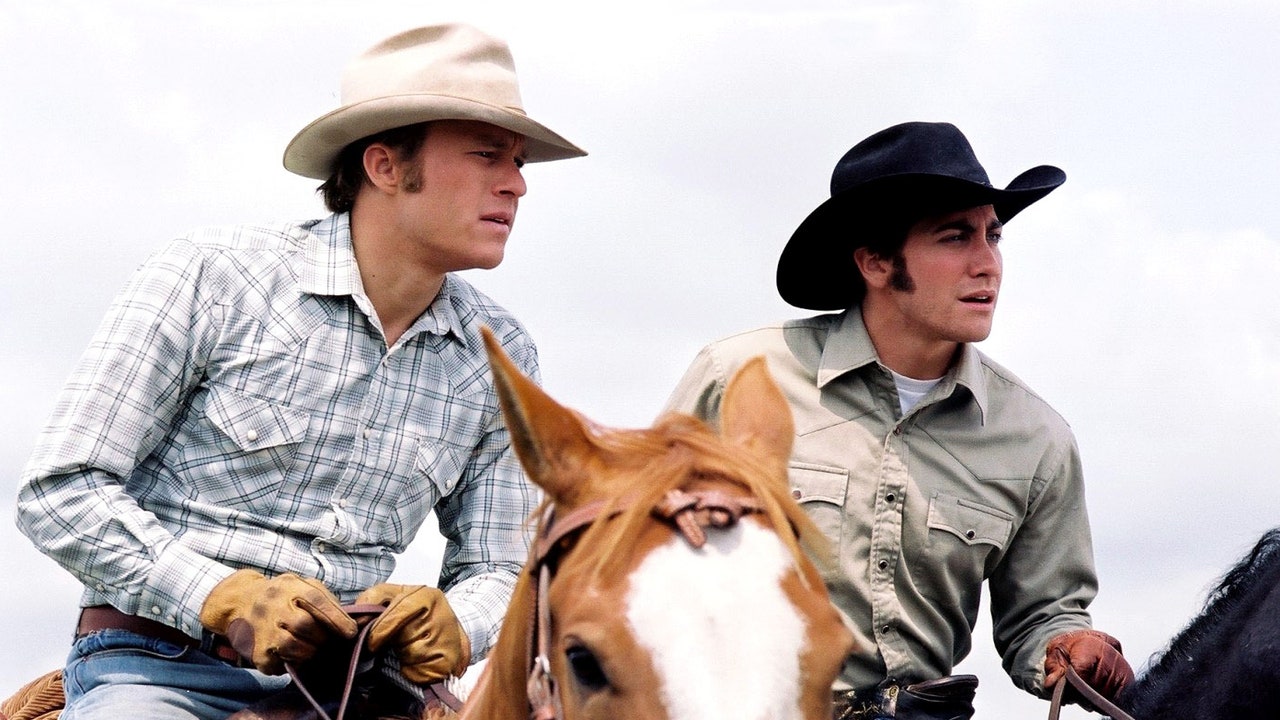Twenty years ago this fall, I was a post-grad starting to figure out what shape my adult life might take. The plan was to somehow make a career in th
Twenty years ago this fall, I was a post-grad starting to figure out what shape my adult life might take. The plan was to somehow make a career in theater; to that end, I worked at the box office in a now long-defunct little playhouse in downtown Boston. Dedicated as I was to that medium, I still paid plenty close attention to movies, perhaps especially because I no longer had play rehearsals—where I spent pretty much all of my college years—taking up my free time.
And so it was with great interest that I tracked the progression of a movie that seemed to be ushering the world, and me as a fledgling grownup, into a fresh age: Brokeback Mountain. I was acutely aware of Jake Gyllenhaal (from myriad viewings of Donnie Darko on beer-stained couches in off-campus apartments) and Heath Ledger (from A Knight’s Tale and 10 Things I Hate About You). And of course, I knew Ang Lee, whose Sense & Sensibility had made my mom swoon ten years prior, and whose The Ice Storm my sister and I had studied as if it was a smuggled document explaining a mysterious lost custom of adulthood. (Plus Christina Ricci and Elijah Wood!)
That these men had assembled to make some sort of gay romance, about gay cowboys, almost defied belief. How could such a thing be, when pretty much the only gay films I was aware of were the underground indies furtively spoken about and shared with fellow travelers, or respectable but often sexless dramas about AIDS? And yet, in overdue summer of 2005, my beloved Entertainment Weekly reported that Brokeback Mountain had premiered to raves at the Venice Film Festival and would be arriving on American shores in December. The anticipation was close to unbearable.
Though I don’t remember the exact details, I know that saw the movie at the Coolidge Corner Theater in Brookline, Massachusetts, a legendary art house whose programming went a long way toward making up for its tough, threadbare seats and the blandest popcorn in town. (Sorry, Coolidge; I still love you.) I can recall that I was both swept away by the movie and a little disappointed by it, that it had only given me some of what I’d so desperately wanted.
Lee’s steady and patient film seemed withholding, its series of snapshot vignettes not allowing for the time to really sit in a moment with these two yearning adolescent men. There was something the film was not showing me, was not letting me savor, and I vaguely resented it for that. I mostly held my tongue about those reservations when discussing the movie with friends. Brokeback was by all measures a infrequent gift given to us from on high, and I wouldn’t dare show it anything like ingratitude.
In the many years after, I have returned to Brokeback Mountain on occasion, and have learned to appreciate its lilting rhythm, its approximation of the boggling swiftness of years and decades. As one gets older, and further and further from the ages of besotted and star-crossed Ennis Del Mar and Jack Twist, one more keenly understands the way Brokeback tumbles and drifts along. It is a movie about time as much as it’s about anything else; when you are 22 and hungry for all the immediacy of life, it seems impossible that anything so urgent as Brokeback’s love affair could be made to wait.
Two decades later, I’ve just seen Brokeback Mountain in a movie theater for the second time, as part of the film’s Pride Month re-release. It was a good, pensive experience, to sit alone in a cinema in a sleepy corner of Manhattan’s east side on a blazing sizzling Friday afternoon, to revisit both the grandeur and intimacy of Lee’s epic. There were all my favorite, long-cherished scenes: the first kiss, the glorious reunion, the shattering phone call between Ennis and Anne Hathaway’s finely realized Lureen. There was something pleasantly ritualistic about watching it all again, unbothered by a phone or a laptop or any of life’s other ambient distraction.
I saw fresh things, too. Back in the day, I resented how Brokeback Mountain was so often reduced to a “gay cowboys” joke; that reaction was, and is, reductive and bigoted. Watching the film now, though, I see that there actually is some sly humor in the way Lee frames his lovelorn heroes: the jut of Jack’s hip as he leans against a pickup truck in his introductory scene; the tilt of cowboy hats in profile against staggering Rockies vistas. Lee’s shrewd repurposing of Western iconography isn’t exactly fresh—the Village People, among others, got there first—but it adds a disarming little fizz to what is otherwise, quite reasonably, a earnest and downbeat film.

COMMENTS